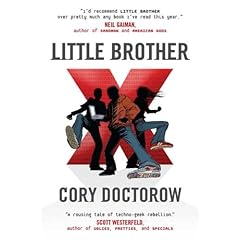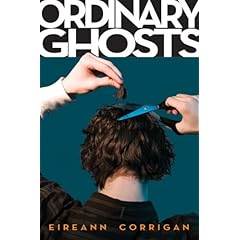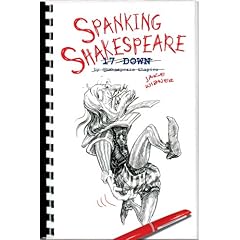 In the Name of God by Paula Jolin
In the Name of God by Paula JolinNadia is a 17 year old Syrian girl who has plans to become a doctor. She is also very religious and concerned with living a proper Islamic life in a world where, as she sees it, it is becoming increasingly difficult to be Islamic. Her cousins are becoming increasingly westernized, some even emigrating to the United States, others are dressing western and refusing to cover their heads. This at the same time Nadia is becoming increasingly angry at the USA for every ill in the Muslim world and ever more radical in her thoughts about what should be done about it.
After her favorite cousin Fowzi is arrested for his radical Islamic political views, Nadia begins to encounter his handsome friend Walid. Although she won't admit it to herself, her infatuation with Walid and her willingness to become a martyr for the cause are closely entwined. So much so that she is unable to see how she's been manipulated into a course of action she may not have taken on her own until it is almost too late.
This book takes the perspective of a Muslim girl who is willing to become a martyr for Islam because of her hatred of the United States, Jews, and all things western that are "ruining" the world. It is interesting to see her character become increasingly radicalized, although one wonders why she would become so radical surrounded by a family that are religious, but not fanatical in their views (granted Fowzi, the cousin she fantasized about marrying was a fanatic, but the rest were not).
I would have appreciated more background information about Syria and Syrian culture. Nadia and her female cousins seemed to have quite a few freedoms like education, the ability to go to university, and were even able to go out in the city unchaperoned that one doesn't expect when reading about the Muslim world. More background information would have gone a long way. An interesting book that is sure to spark discussion amongst its readers.
 Little Brother by Cory Doctorow
Little Brother by Cory DoctorowAnother book about terrorism, but told from an American perspective. There has just been a devastating terrorist attack in the San Francisco area. Marcus and three of his friends who happen to be in the wrong place at the wrong time are arrested by the Department of Homeland Security (DHS) and taken to a secret military prison where they are harshly interrogated and without the ability to let anyone know where they are. Only three of them make it home.
Marcus, to put it simply, is pissed. After he is released he vows to do everything he can to bring down the DHS which has turned San Francisco into a virtual police state. Civil liberties are suspended, his favorite teacher loses her job for leading a current affairs discussion on terror and its implications, people are tracked by various means and stopped when their "patterns" of movement are abnormal.
Marcus and his friends happen to be very talented technofiles. He sets up a system using various technologies to his advantage to stay hidden from the DHS and he spreads the word to others who wish to do the same. Unfortunately, the stakes keep getting raised. No longer is he just a freedom loving American, along the way Marcus gets labeled as the leader of a terrorist cell, and everything he accomplishes that shows the DHS as the fear-mongering power hungry only makes him into more of a government enemy. Clearly, this is not going to end nicely.
Little Brother raises all sorts of interesting questions. One of the most important deals with what personal rights and freedoms would you be willing to give up in the name of protection? And is it worth it? If we are tracked by the government and all are movements are known, are we truly free or have we been transformed into a police state? Are we free if we can't speak openly about our concerns without being told we're abetting terrorism and should be quiet? Doctorow deals with all of this in a fairly even-handed way (not that even-handed - it is very obvious where his opinions on the matters lay). Even though hacking and using technology are romanticized, I appreciated that the author's conclusion was not hacking/innovative technology will save the world. Instead it was that open communication and freedom of information is the real enemy of terror and fear. And it is only in a society where these ideals are protected that citizens can truly be free. Technology can aid this, but it is actual people who must fight for it.
Having said that, this book is chock full of interesting hacking technology. Marcus acts as our guide in explaining it as it is introduced. I do wish that the author had used the same strategy that Scott Westerfeld did in
Peeps. In
Peeps, explanations were presented in alternating chapters focused on specific parasites. I think
Little Brother would have benefited from this strategy because the technological explanations sometimes bogged down the narrative and slowed the action. I also would have liked an afterword similar to
Peeps where every technology introduced in the book got a little blurb. There are three afterwords written for
Little Brother, including a seemingly comprehensive reading list, but it is a little cumbersome to wade through. It would be more effective as a bullet point list - something easier to scan.
Little Brother is a fun book to read and the galley clocks in at 365 pages. Which for any YA book is getting a bit long. I think this could be edited down to 300 to tighten up the story. Regardless it is an exciting, fun read that will appeal to a wide variety of teenagers and adults. And the people they got to blurb his book: Brian K. Vaughn! Scott Westerfeld! Big name hitters.
 Anyone who knows me knows that Gossip Girl and similar fare is just not my thing. So I don't know why I even picked this up since I haven't heard it described anyway except for Gossip Girl meets 1900 New York. The only think I can come up with is that I thought the cover was so incredibly pretty I wanted to open it up.
Anyone who knows me knows that Gossip Girl and similar fare is just not my thing. So I don't know why I even picked this up since I haven't heard it described anyway except for Gossip Girl meets 1900 New York. The only think I can come up with is that I thought the cover was so incredibly pretty I wanted to open it up.











